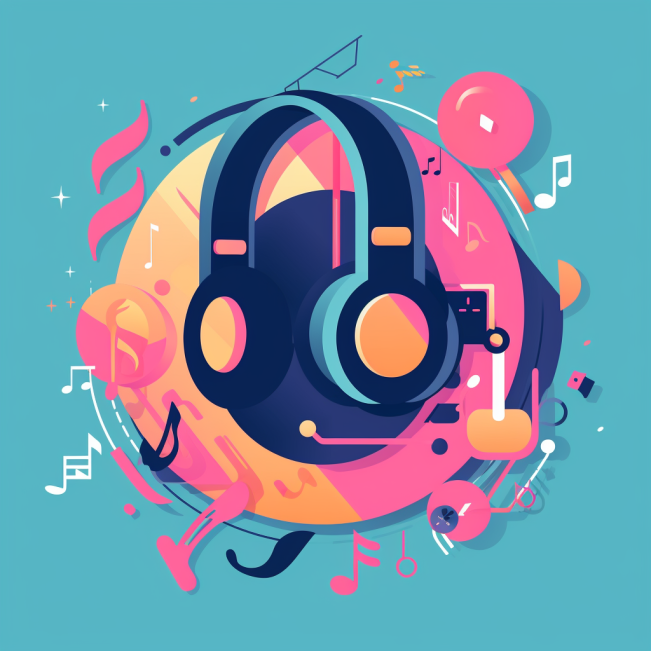The music industry has always been at the forefront of technological advancements, from the invention of the phonograph to the streaming revolution. Now, with the advent of artificial intelligence (AI), the music industry is once again poised to undergo a significant transformation. In this blog post, we will explore the impact of AI on the music industry, discussing how it is changing the way music is created, distributed, consumed, and monetized. We will also delve into the implications of these changes for artists and producers, examining the opportunities and challenges that the AI revolution presents.
Part 1: AI and Music Creation
AI is revolutionizing music creation by enabling artists and producers to generate music in new and exciting ways. One of the ways in which AI is changing the music creation process is through the use of generative models. These models use machine learning algorithms to analyze and learn from large datasets of existing music, allowing them to generate new compositions that are stylistically similar to the input data.
Generative models can be used in a variety of ways, from assisting artists in the composition process to generating entire songs or albums autonomously. For example, Amper Music is a platform that allows users to create custom music tracks using AI-generated melodies, harmonies, and rhythms. Similarly, AIVA (Artificial Intelligence Virtual Artist) is an AI tool that can generate custom background music for videos,podcasts, and other media. These tools can save time and effort for artists and producers, allowing them to focus on other aspects of the creative process.
Another way in which AI is changing music creation is through the use of AI-powered instruments. These instruments use machine learning algorithms to analyze and learn from the playing and performance style of human musicians, allowing them to replicate and even enhance their sound. For example, the Mellotron Micro is a digital instrument that uses AI to emulate the sound of the iconic Mellotron keyboard, used on classic tracks from artists such as The Beatles and Pink Floyd.
AI is also being used to create entirely new sounds that were previously impossible to generate with traditional instruments. For example, Google’s NSynth Super is an AI-powered synthesizer that can combine the sounds of multiple instruments to create entirely new, hybrid sounds. Similarly, the AI-powered DrumSynth is a digital drum machine that can create unique, complex rhythms that would be difficult to replicate with traditional drum machines.
Part 2: AI and Music Distribution
AI is also changing the way that music is distributed and consumed. One of the most significant changes is the rise of music recommendation algorithms, which use machine learning to analyze user data and suggest new music that they are likely to enjoy. Platforms such as Spotify, Apple Music, and Pandora use these algorithms to create personalized playlists and recommendations for their users.
Music recommendation algorithms can be beneficial for both artists and listeners. For artists, they can help to increase exposure and reachnew audiences. For listeners, they can help to discover new music that they may not have found otherwise. However, there are also concerns that these algorithms may lead to a homogenization of music, with only popular or mainstream artists being recommended to listeners.
AI is also changing the way that music is monetized. For example, blockchain technology and smart contracts have the potential to revolutionize the music industry by enabling artists and producers to receive fair compensation for their work. Smart contracts can be used to automate the distribution of royalties and ensure that artists receive a fair share of the revenue generated by their music.
Part 3: Implications for Artists and Producers
The AI revolution presents both opportunities and challenges for artists and producers. On the one hand, AI can help to automate and streamline the creative process, enabling artists to create music more efficiently and effectively. It can also help to increase exposure and reach new audiences, as well as provide new revenue streams through the monetization of AI-generated music.
However, there are also concerns that AI may lead to a loss of creativity and originality in music. Some critics argue that AI-generated music lacks the emotional depth and human touch that is essential to great music. Additionally, there are concerns that AI-generated music may lead to a homogenization of music, with only a few popular or mainstream styles being produced.
Another concern is the potential impact of AI on employment in the music industry. As AI becomes more prevalent in music creation, there is a risk thatit may replace human musicians and producers. While AI-generated music may be more cost-effective and efficient, it may also lead to a loss of jobs and income for those in the traditional music industry.
However, it’s important to note that AI is not a replacement for human creativity and talent. Rather, it can be seen as a tool that artists and producers can use to enhance their creative process and expand their musical palette.
Conclusion
The AI revolution is already having a significant impact on the music industry, from the creation of AI-powered instruments to the rise of music recommendation algorithms. While there are concerns about the potential loss of creativity and jobs, AI also presents exciting opportunities for artists and producers, from streamlining the creative process to providing new revenue streams.
As the music industry continues to evolve and adapt to new technologies, it’s clear that AI will play a significant role in shaping its future. The key will be to strike a balance between the benefits of AI and the importance of human creativity and talent in creating great music.
